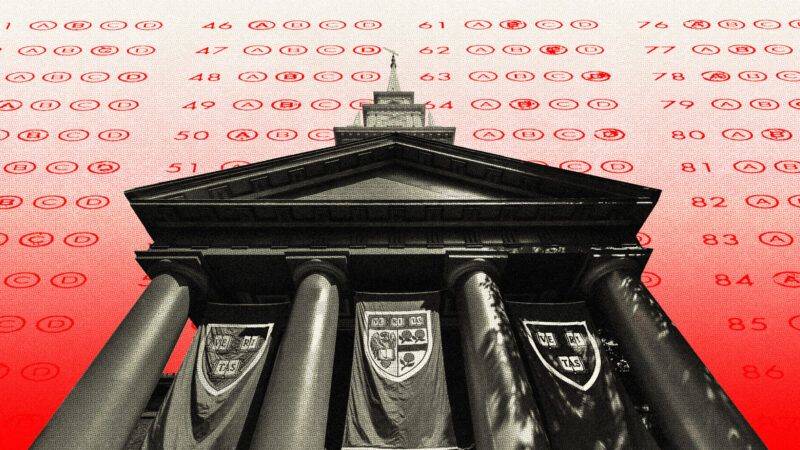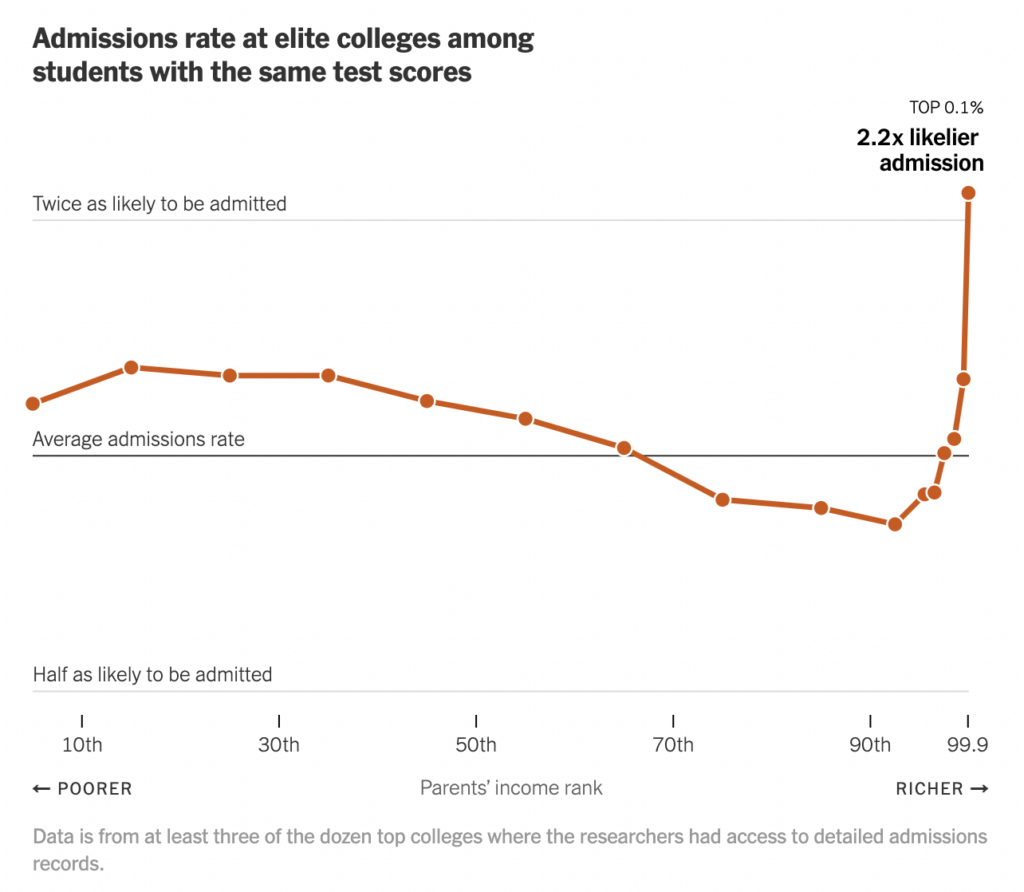Killing the SAT To Help Underprivileged Students Actually Benefits Rich Kids
It's time to retire the idea that getting rid of standardized tests increases equality.

A new study published on Monday shows that even when controlling for test scores, children from wealthy families have a higher chance of being accepted to an elite college than their middle-class counterparts. Further, the study found that applicants from families in the top 0.1 percent have over double the chance of being accepted to an elite institution than the average applicant.
The study, conducted by a team of Harvard and Brown University researchers, examined admissions data from a group of 12 "Ivy-Plus" colleges—the eight Ivy Leagues, plus Stanford, Massachusetts Institute of Technology, Duke University, and the University of Chicago. The study found that students from the 1 percent were much more likely to be admitted to these elite colleges, even when controlling for standardized test scores. It concluded that this admissions gap is primarily due to three main factors: admissions preferences for children of alumni, athlete recruitment, and the weight placed on nonacademic criteria, like extracurriculars and teacher recommendations.

"The three key factors that give children from high-income families an admissions advantage are uncorrelated or negatively correlated with post-college outcomes, whereas SAT/ACT scores and academic credentials are highly predictive of post-college success," the study authors note.
While the study found that attending an Ivy-Plus university instead of a state flagship university didn't dramatically increase students' average future earnings, it nonetheless found that attending an elite university increased a student's likelihood of entering the 1 percent by 60 percent, almost doubled their chance of attending an elite graduate school, and tripled their likelihood of working at a prestigious firm.
As an alternative to current practices, the study proposed that colleges eliminate legacy preferences, athlete preferences, and the emphasis on nonacademic criteria like extracurriculars and teacher ratings.
"Under such an admissions policy, the share of students attending Ivy-Plus colleges from the bottom 95% of the parental income distribution would rise by 8.7 percentage points, adding 144 students from families earning less than $240,000 (the 95th percentile) to a typical Ivy-Plus college," the authors state. "This increase of 144 students from lower-income and middle class families is similar to the reduction in the number of Black and Hispanic students that would arise from eliminating race-based affirmative action policies absent any other changes in admissions practices."
The study provides yet more evidence that the recent move to ditch SAT and ACT test requirements in favor of a higher emphasis on nonacademic measurements will end up hurting low-income students rather than helping them. While a move away from standardized testing has been hailed as a move to increase racial and economic equality, a greater reliance on admissions essays, extracurriculars, and teacher ratings will make it harder for talented yet disadvantaged students to prove themselves when applying to elite universities. One 2021 study backed this up, finding that student essays were more closely correlated with income than SAT scores.
This shouldn't be surprising. Tests are simply harder to game than nonacademic factors. Wealthy families can hire tutors to write polished admissions essays for their children, ensure they have a battery of extracurricular activities and sports, and make sure they attend schools where skilled guidance counselors know how to write a glowing letter about an applicant. Expensive test prep, on the other hand, is limited in its efficacy. And simply taking practice tests—which are widely available online for free—seems to be the most effective way to study.
While this study isn't likely to single-handedly end the popular idea that getting rid of standardized tests is a surefire way to help disadvantaged students, it provides yet more evidence that, for those who want to level the playing field in the world of elite college admissions, standardized tests are indispensable.

Show Comments (139)